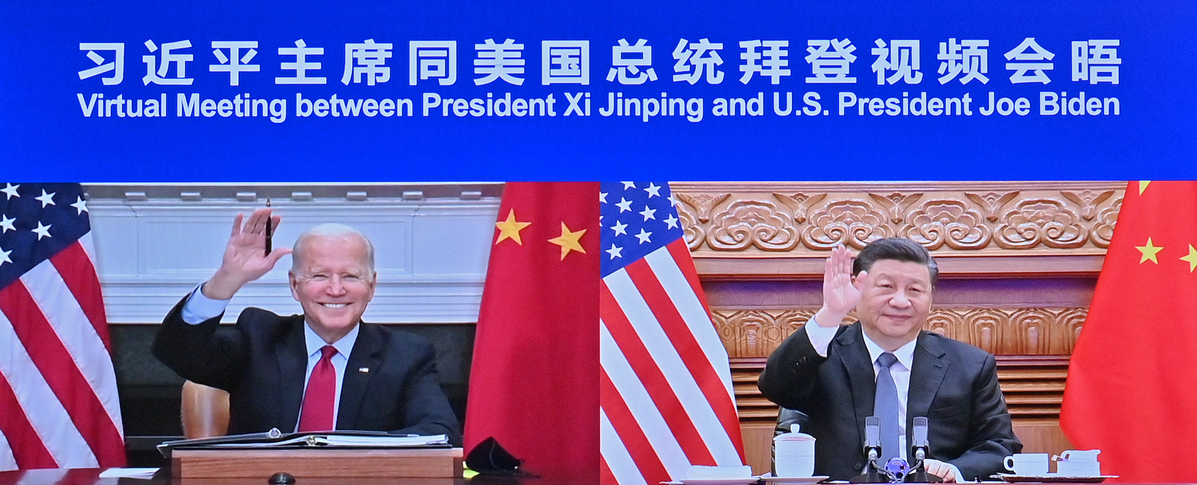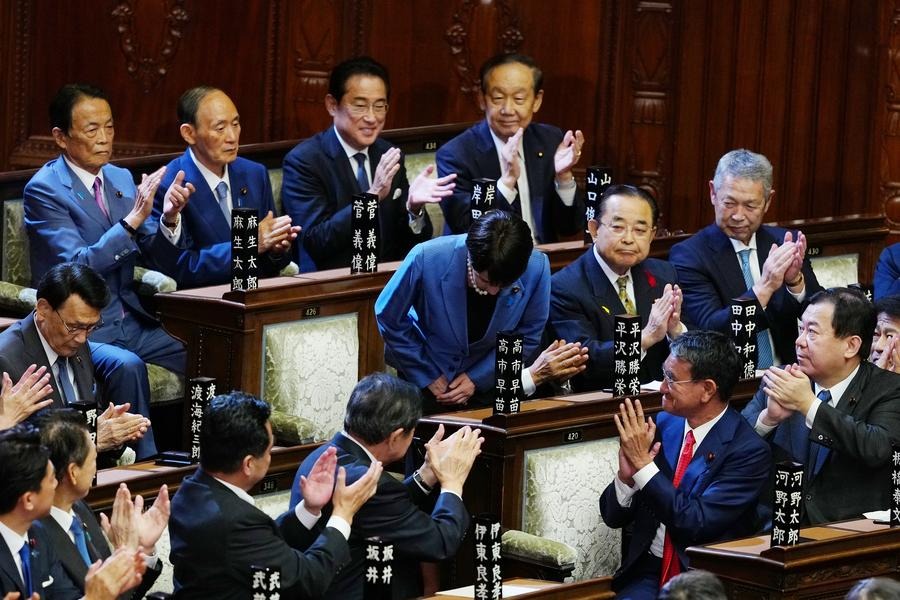Imagine a better future for Sino-US ties


My interest in China was sparked by a primary school teacher in the mid-1960s. Since then, I have travelled throughout China trying to understand and build bridges between the United States and China, which have starkly different governing philosophies.
The changes and improvement in the daily lives of the Chinese people over the past 40-odd years have been remarkable. It has been like watching a movie that begins in black and white and gradually and then rapidly morphs into Technicolor. The Communist Party of China, having recently celebrated the 100th anniversary of its founding, deserves praise for its accomplishments. Clearly there is a new era of national strength.
The world is quick to magnify China's real and perceived failures and shortcomings and hesitant, sometimes unwilling, to celebrate the country's successes.
As I have written in the past, eradicating extreme poverty in a country of 1.4 billion people while the rest of the world is set to see an increase in poverty is worthy of a Nobel Prize.
Conversely, China has to do much more than denouncing "interference in our internal affairs" to blunt the West's concerns over the ideological gap facing the Hong Kong Special Administrative Region, the Taiwan island, and the Xinjiang Uygur and Tibetan autonomous regions. China still has much work to do at home and as part of the global community.
Today, the US-China relationship is at a worrisome point tilting toward frightening. Escalating tensions between the two countries creates a massive obstacle to effectively addressing existential global threats.
Fortunately the virtual meeting between President Joe Biden and his Chinese counterpart Xi Jinping can bring a sigh of relief because at least the two leaders held talks at a critical time, which was important for the two big countries to manage differences.
Can we find ways to jointly address threats to humankind? Climate change, the COVID-19 pandemic and future pandemics along with the economic disruption they unleash require major countries to lead, not squabble.
Joining forces as we did in World War II is the only way to tackle our menacing global challenges. Due to distrust, our respective leaders are busy splashing mud on each other as opposed to laying stones to cross the river together. Behaving like children on a see-saw, with one country up and the other down, is futile.
There are always tensions. Countries, like tectonic plates, shift. Talk of decoupling, great power competition, authoritative threats, and a new Cold War boiling over into an armed conflict around 5G, the Taiwan question, or the South China Sea issue ought to make any thinking person pause.
China's goal is to restore its historical greatness — a return to fuqiang (wealth/power) —and becoming a "great modern socialist country". China has stood up and is on a long march to claim victory on or before the centenary year of the founding of the People's Republic in 2049.
As a former Junior Golden Gloves champion, when I got in the boxing ring, even against my best friend, I was always there to win. However, we need our governments to not view every issue as a boxing match.
Maintaining the counterpoint drama in areas of disagreement has become annoying, counterproductive, and downright destructive. The world stage is finite. In this new era of competition, we must cooperate, creating a path that allows for mutual strategic interests, sovereignty over our respective internal affairs, and a genuine action plan to improve the lives of the people of the US, China, and all of humanity.
China must also realize that "common prosperity" in a globalized world needs to extend beyond China's borders.
Therefore it's a very positive sign that the two presidents held a dialogue, which was important for both to find ways to conduct open dialogue, focusing on the "six Cs" — communication, collaboration, cooperation, coordination and competition, but avoiding unnecessary confrontations, while seeking ways in which both countries can claim success instead of a one-sided victory.
At the subnational level, we need to adopt the sentiment of the US-China Heartland Association — "understanding that not all bridges are built of concrete and steel". Bridges are ALSO built on friendship, cultural exchanges, and economic, health, educational and scientific cooperation.
For every action, there is an equal and opposite reaction. With suspicion and a lack of trust, a confrontation between our countries is regrettably and frighteningly plausible today. Our respective leaders need to strive to rise above the nationalistic fervor now building in our countries. Several things are clear: neither country will genuflect to the other, neither will disappear, both will continue to jockey for their sphere of influence, neither will change its form of government, and there is insecurity over security competition between us.
The US may slow China's rise, but it cannot stop it. Attempting to do so is about as effective as building a chain link fence to hold back a tsunami. The US needs to invest in itself and stop bashing China as a winning strategy.
We will continue to agree, agree to disagree, and argue over a plethora of issues. But as late Beatle John Lennon once sang, Imagine all the people, livin' life in peace.
President Xi and Biden have the power to change the course of history by boldly leading the world forward in peace and harmony. They have the power to stop the great power competition, and call for a "summit on global health", call for a shared vision and common agenda with specific, measurable targets to save the only planet we call home, by jointly combating climate change, improving global health and preventing future pandemics, alleviating global poverty and hunger, and eradicating inequality
The two countries should understand that no agreement can stand the test of time unless both sides are invested in its success. We need to adopt the classic precondition for successful negotiations — victory for both sides and all of humanity.
China and the US are at an inflection point.
Imagine!
The author is an adviser to the Detroit Chinese Business Association.
The views don't necessarily reflect those of China Daily.


































